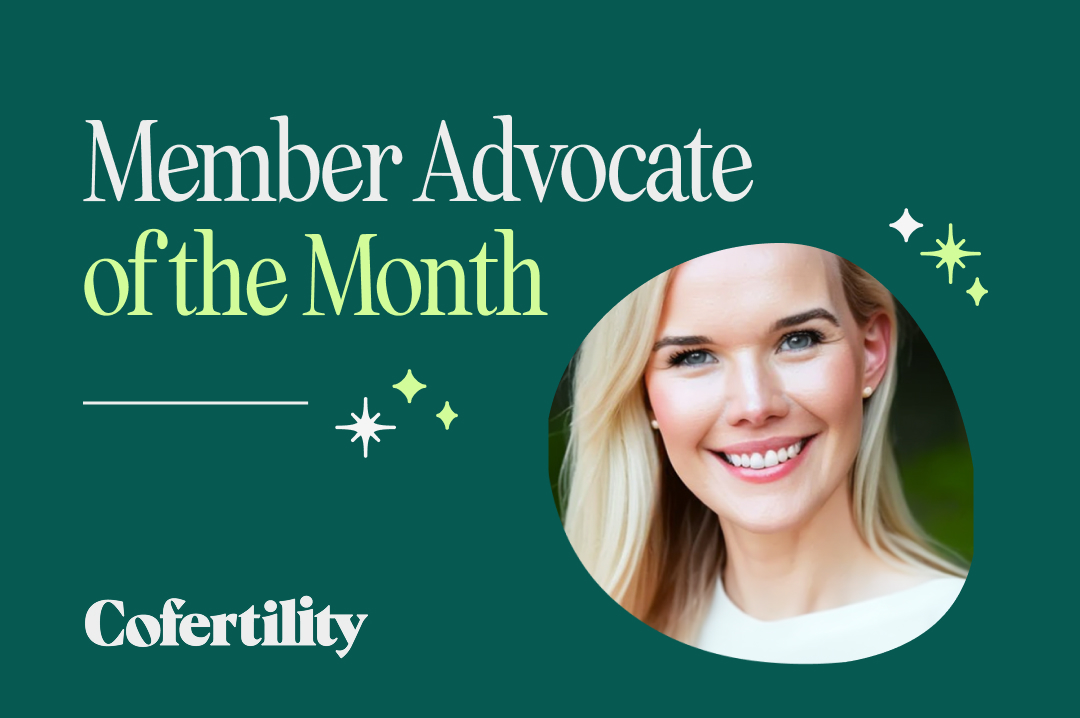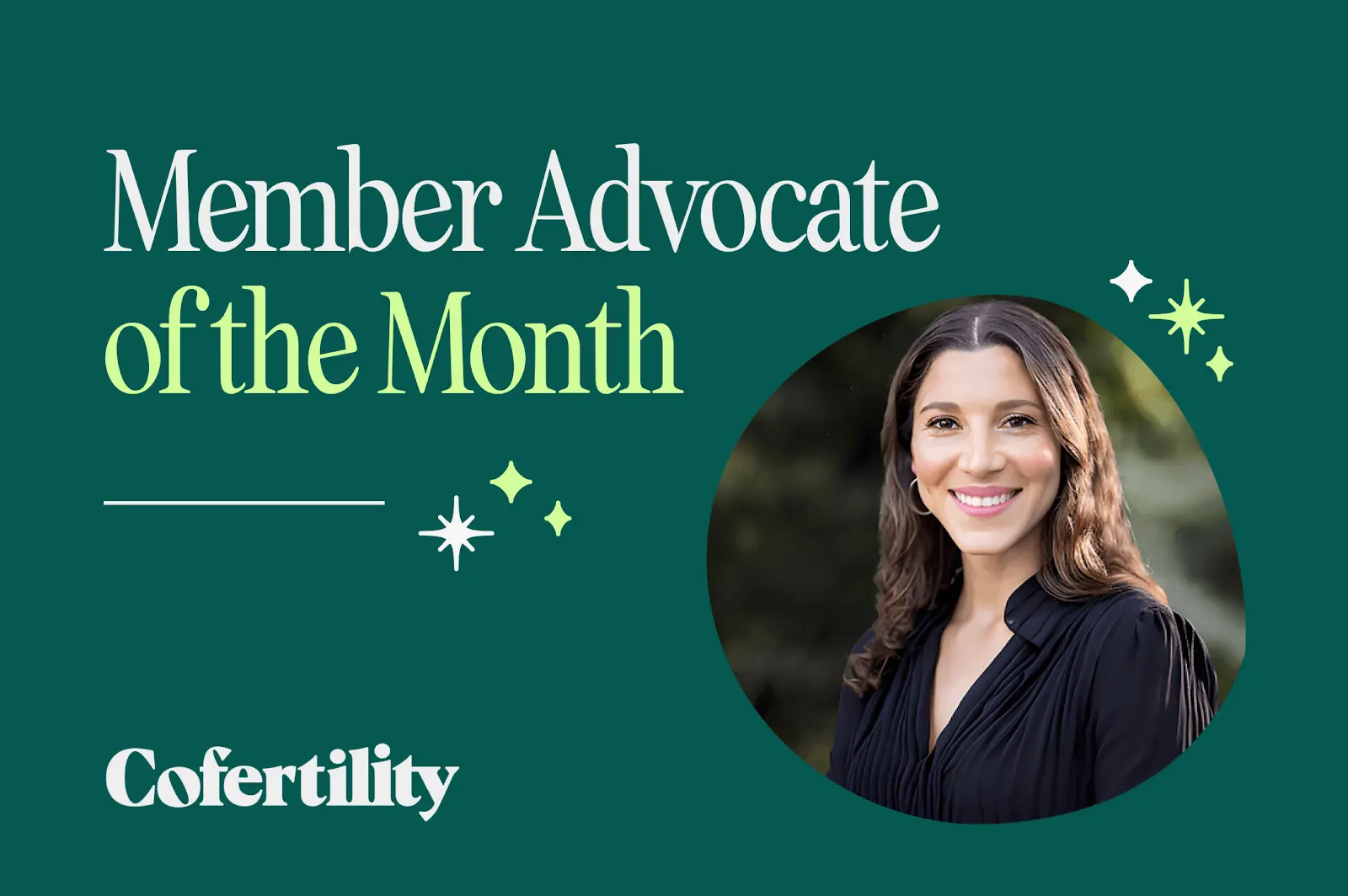.png)
.png)
International Donor Conception Awareness Day was created in 2020 by therapist Jana M. Rupnow, LPC, author of Three Makes Baby, alongside twenty global partners. This day has grown into a significant moment for recognizing and discussing the experiences of donor-conceived people, their families, and the donors who help make their existence possible. At Cofertility, we believe this day serves as a reminder of our responsibility to consider the perspectives and needs of donor-conceived children in every decision we make.
Every day we're working to create better outcomes for donor-conceived people through ethical practices, transparency, and support for all parties involved. From our human-centered Split program to our commitment to educating families on disclosed egg donation, we're focused on fostering positive lifelong experiences for the tiny humans we help bring into this world. Here's how we're approaching this important work and what we've learned along the way.
About Cofertility
Cofertility is a human-first fertility ecosystem rewriting the egg freezing and egg donation experience. Our Spit Program honors families and egg donors with a thoughtful, human-centered matching experience. Our unique egg sharing model empowers women to take control of their own reproductive health while giving families the gift of a lifetime.
A human-centered approach
At Cofertility, every policy and program element considers the potential impact on donor-conceived people. Here's how we implement this human-centered approach:
- Disclosed donation: We highly encourage disclosed donations as we’ve met with the US Donor Conceived Council and heard from the donor conceived community that disclosed is best for the donor conceived person. Over 80% of our matches are disclosed.
- Thorough screening process: Our screening process includes comprehensive genetic testing, detailed family medical history review, psychological evaluation including discussion of future contact, and criminal background checks to ensure the health and safety of everyone involved.
- Parent education: We provide intended parents with lifetime support and resources for age-appropriate disclosure, guidance on maintaining records, and support for discussing genetic origins with their children.
- No cash comp: A recent Harvard study revealed that 62% of donor-conceived adults viewed the exchange of money for donor gametes as ethically problematic, with 41% expressing discomfort regarding the monetary aspect of their conception. Our egg sharing model takes cash out of the equation. Plus, with cash compensation eliminated from the process, our donors are also less likely to donate to multiple families. This limits the number of potential biological siblings your future child may have.
The Split program difference
Our Split program represents a new era egg donation - one that creates inherent connections between donors and the families they help. When women donate through Split, they keep a portion of the eggs while helping another family conceive. This shared experience often leads to more openness and understanding between all parties.
The program naturally selects for donors who are thoughtful about their impact. These donors tend to be more invested in the process and more open to contact. In fact, 80% of our matches are disclosed.
In addition to providing egg donors with more options and agency, research indicates that egg sharing donors consistently report higher levels of satisfaction and positive experiences, underscoring the transformative impact of this approach on donor well-being.
Learning from research and lived experiences
Studies on donor conception continue to shape best practices in the field. Research shows that early disclosure of donor conception leads to better outcomes for children. We encourage intended parents to be open with their children from an early age about their origins.
We also learn from donor-conceived adults who share their stories. Their experiences highlight the importance of:
- Understanding medical history
- Moving away from anonymity in egg donation
- Limiting the number of genetic siblings
- Having a voice in donation practices
We promise to continue to listen to and learn from donor-conceived voices, adapt our practices based on their feedback, and always prioritize the needs of future donor-conceived people in our program. We don’t follow industry standards—we help set them, with the well-being of donor-conceived people at the center of every decision we make.
Our ongoing commitment
The field of donor conception continues to evolve, driven by new research, technological advances, and most importantly, the voices of donor-conceived people. At Cofertility, we stay focused on creating positive outcomes for the children born through our program.
We understand that our work affects real lives and future generations. By maintaining high ethical standards, prioritizing transparency, and providing comprehensive support, we aim to serve the best interests of donor-conceived children while supporting all members of the donor conception community.
This International Donor Conception Awareness Day, we renew our dedication to putting future children first. Through careful consideration of their needs and rights, we work to ensure that donor-conceived people have the resources, information, and support they need throughout their lives.






.png)




.png)







.png)

.png)





